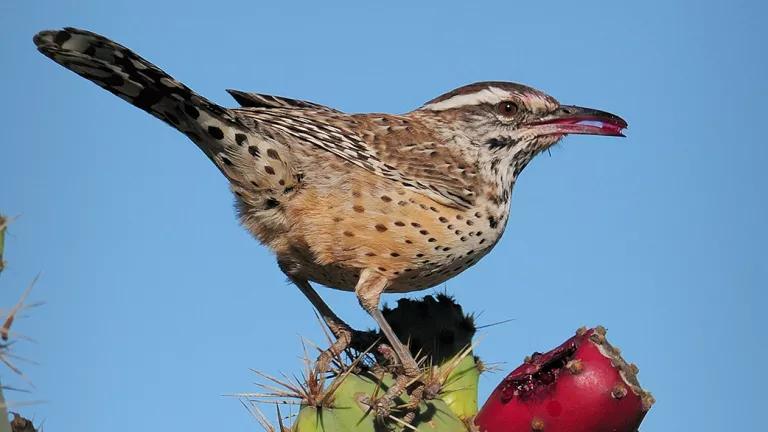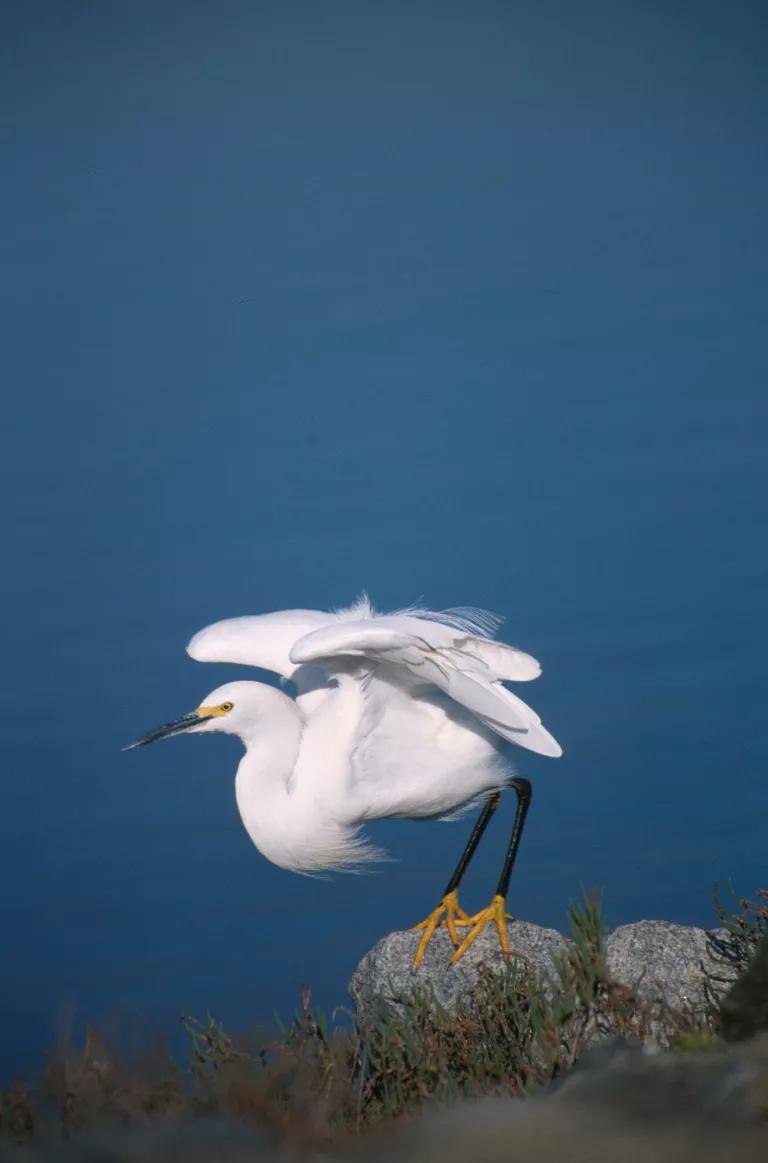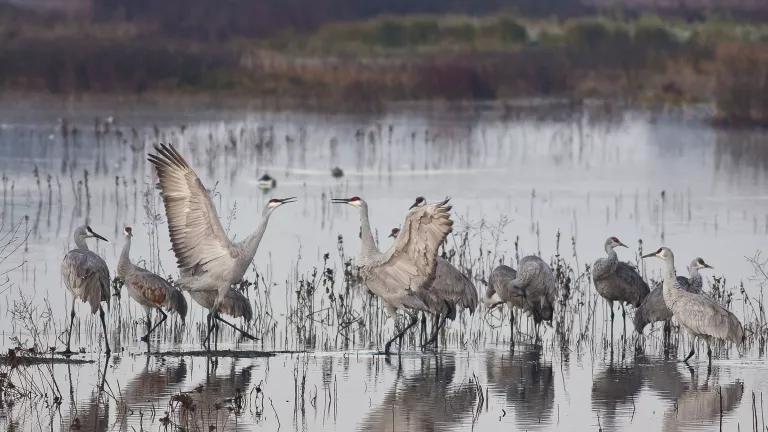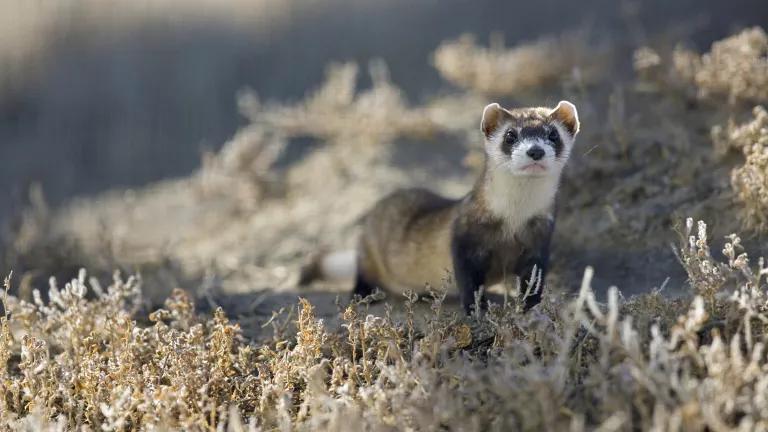Ditch Trump's MBTA Rollback. And Birds Need More.
Many of these bird species have been around for thousands of years. Let’s give them a chance to thrive for many more.

San Diego Cactus Wren
UPDATE: On March 8, 2021, the U.S. Department of the Interior announced that it is rescinding the legal opinion instituted under the Trump administration which, the department wrote in a statement, “overturned decades of bipartisan and international consensus and allowed industry to kill birds with impunity.” The department—which also promised “to develop commonsense standards” and “provide certainty to industry” under the Migratory Bird Treaty Act (MBTA)—is expected to propose a new rule in the coming days.
Undoing Trump’s unlawful gutting of the MBTA is a critical first step to getting bird conservation back on track and combating unprecedented declines. But birds need more.
Thankfully, the Biden administration has already indicated an intent to reconsider the previous administration’s MBTA rule by opening a comment period on all related issues of fact, law and policy. And we will be pressing the agency to go back to the drawing board to restore bedrock protections for birds.
Biden’s Interior Department also seems to have little appetite for defending Trump’s mess in court and is dropping the agency’s appeal of our resounding court win last summer, which invalidated the legal opinion and basis for the final rule that limits the MBTA’s reach to purposeful or intentional killing of birds—e.g., illegal hunting and poaching.

Snowy Egret
But we didn’t just lose the last four years, we slammed on reverse just as birds were signaling SOS.
- In 2019, a global alarm was sounded warning of a biodiversity crisis that is so severe it threatens our very existence. That same year, scientists found that we’ve lost nearly 3 billion birds since the 1970’s and Audubon predicted that climate change will threaten two-thirds of our birds without immediate action. And in 2020, the Audubon Christmas Bird Count pointed out yet another concerning trend in year over year bird declines.
- At the very same time, the Trump administration prioritized dismantling protections covering almost every native bird in our country. Somewhat incredulously, Trump’s Interior Department took two swings at gifting the oil and gas industry impunity from bird kills—the now vacated legal opinion and a final rule in the administration’s waning hours. And the second was a last-ditch effort that blatantly ignored near unanimous opposition and multiple statutory requirements.
While we must continue the drumbeat to reverse the Trump administration’s anti-wildlife legacy, the critical need to proactively address the devastating threats facing birds and guard against any future attempts to unravel the MBTA cannot be understated.
The immediate next step to reverse bird declines and help us once again meet our treaty commitments and combat the global biodiversity crisis should be a rulemaking to set-up an MBTA incidental take permitting program. Such a program could help set a model for modernizing federal wildlife management by prioritizing and protecting species before they are on the brink.
While the enforcement stick should continue to be wielded in egregious circumstances, like BP’s Deepwater Horizon oil spill, the agency’s top priority should refocus on identifying and isolating industry-wide behaviors that impact the greatest numbers of birds that need protection. Focusing on proactive conservation and providing certainty to industry actors that follow best management practices will be the most efficient path towards avoiding needless bird deaths.

Wood Duck at Lake Woodruff
Clarity and funding to implement the MBTA will also be needed from Congress. It’s been over a hundred years since enactment of the law and there is no better time to re-up the MBTA’s conservation mandate and to provide the direction needed to ensure that we can protect our nation’s cherished birds. Only Congress can truly put to rest the Trump administration’s ill-conceived and wrong-headed debate over the statute’s bounds.
Many of these bird species have been around for thousands of years. Let’s give them a chance to thrive for many more.




